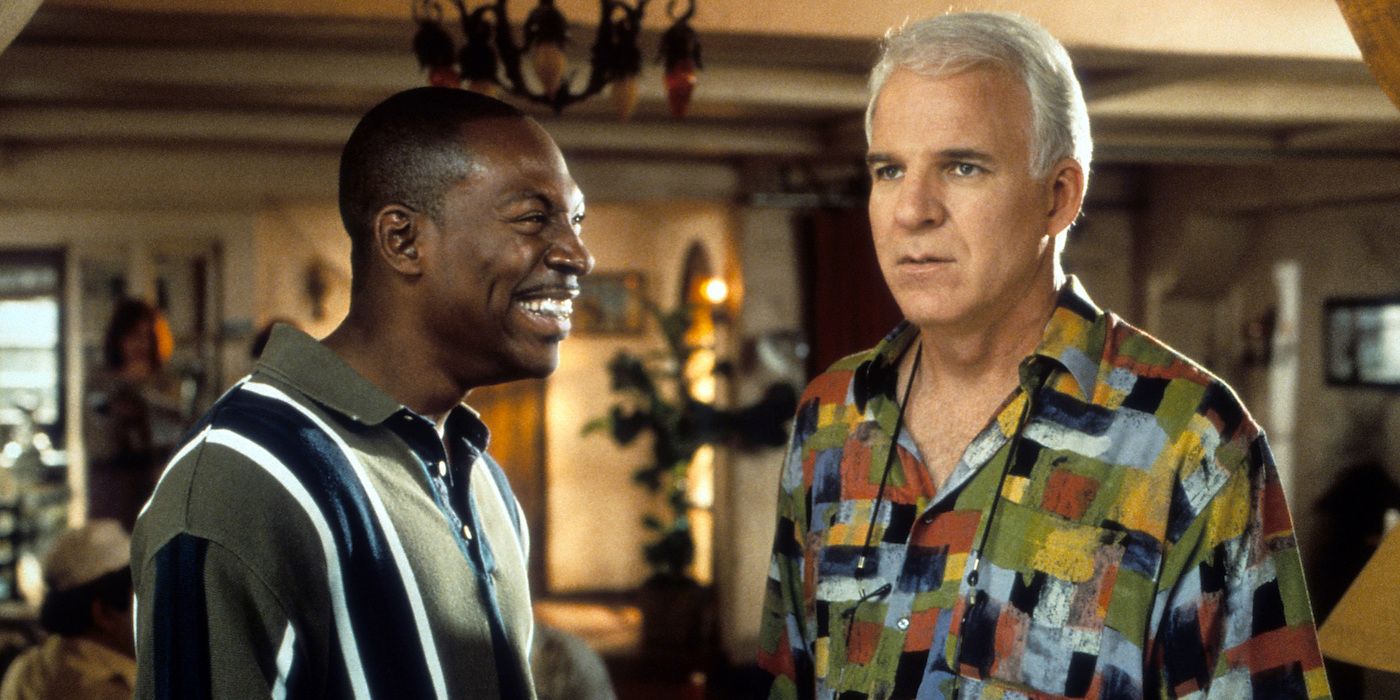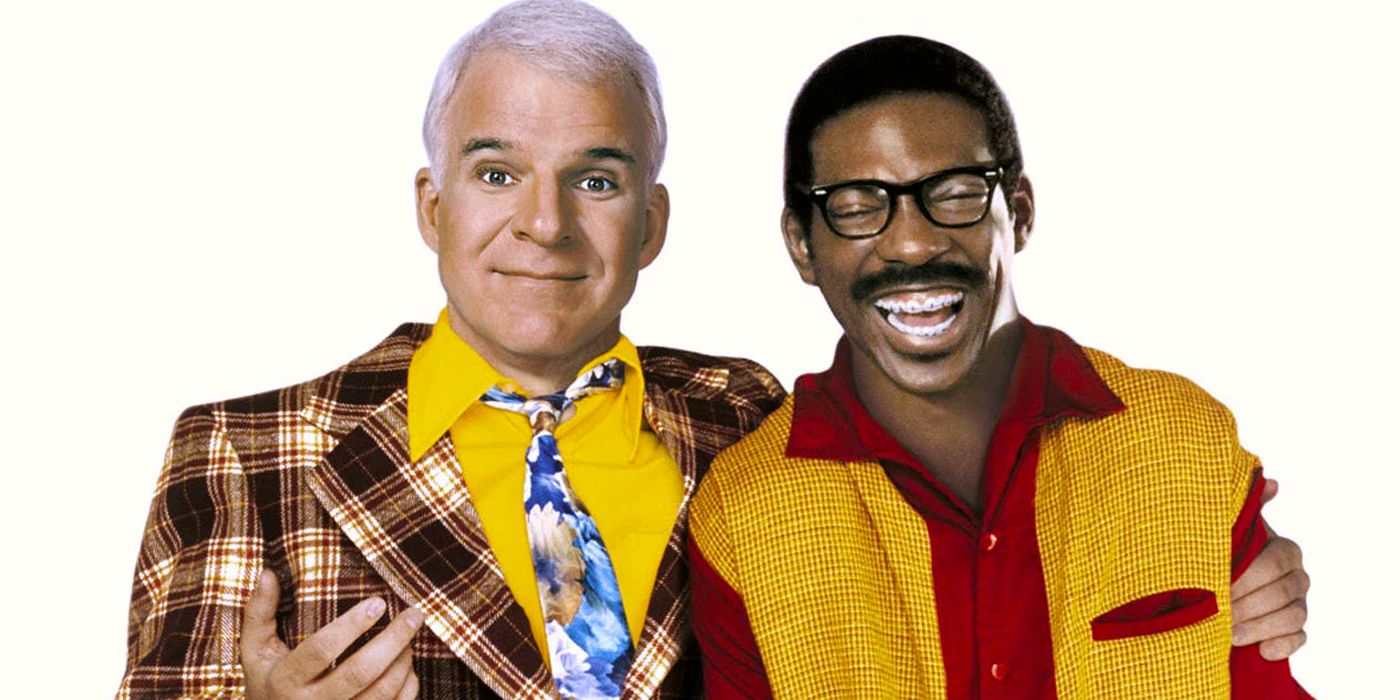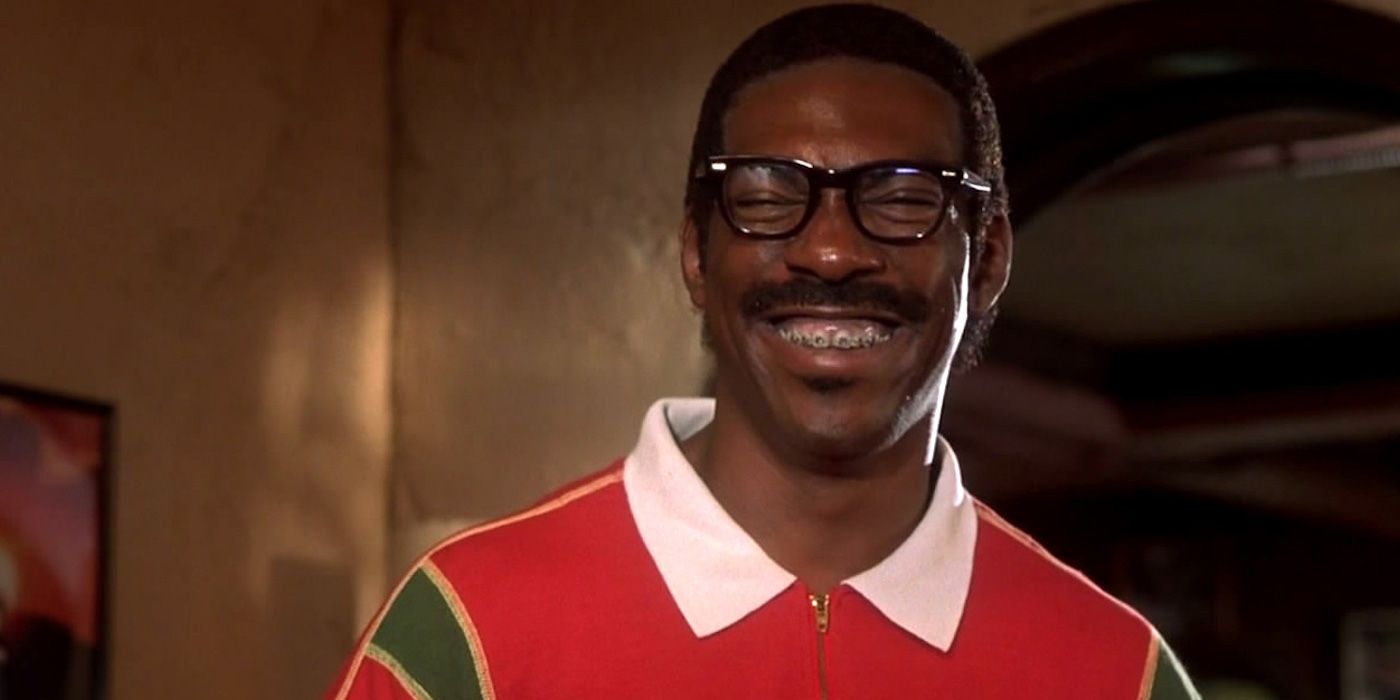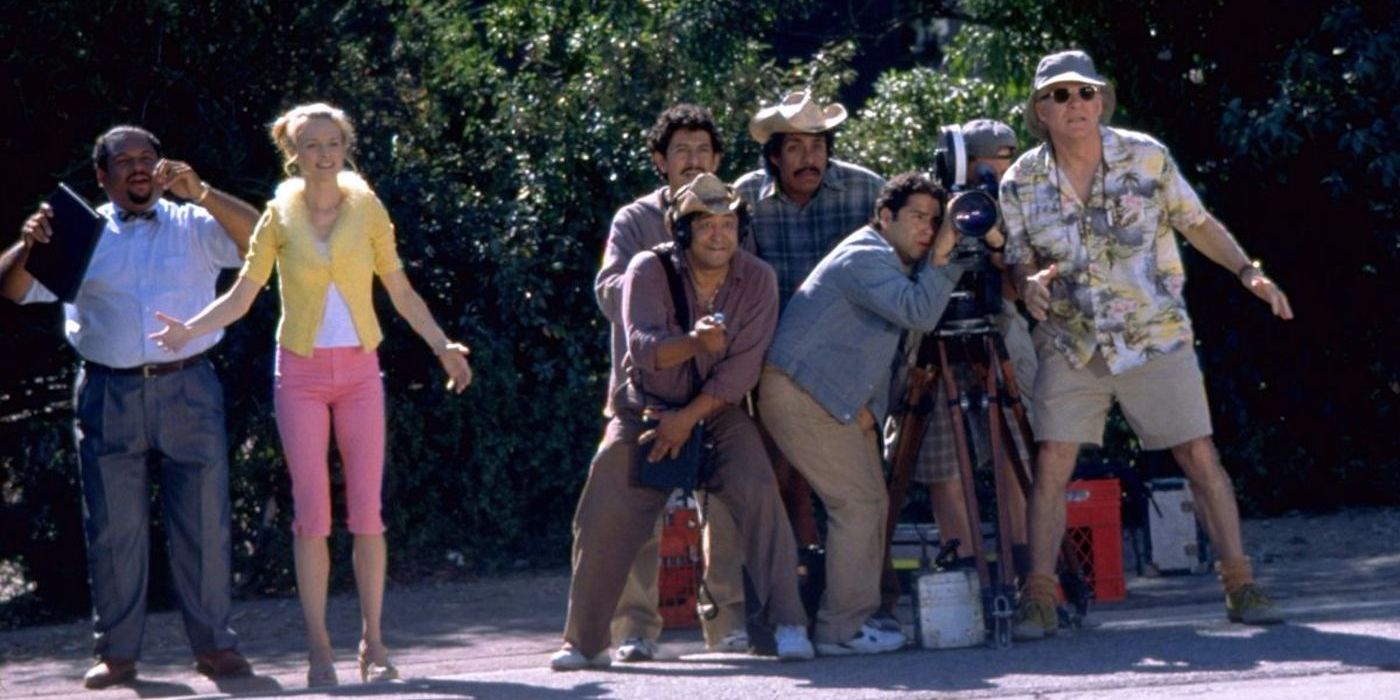Aside from serving as the voice of iconic characters ranging from Miss Piggy to Yoda and beyond, Frank Oz has directed more than his fair share of great comedies. Maybe you’re a Little Shop Of Horrors fan – with a talking, voraciously hungry plant and Steve Martin in a bit part as a psychotic greaser dentist who literally gets high on his own supply, how could you not be? There’s also What About Bob?, the prickly, endlessly rewatchable cult item that sees Bill Murray and Richard Dreyfuss terrorizing each other to no end. All that said, none of these aforementioned comedies, terrific though they may be, can hold a candle to the modern masterpiece that is the Steve Martin/Eddie Murphy two-hander, Bowfinger.
Simply put, Bowfinger is one of the funniest movies of its decade, and one of the more shockingly prescient showbiz satires to endure from the 1990s into today. Much has been written about what a watershed year 1999 was for film – how could it not have been, with the release of films like The Sixth Sense, Eyes Wide Shut, Magnolia, The Insider, and so many more. Yet, with such abundant praise having been lavished on those admittedly more highbrow aforementioned works, it may be possible that Bowfinger, though it’s rightly been canonized since its release as its own kind of comic milestone, still may not be getting the love it deserves. Oz's film is a goofball throwback to a time when studio comedies could be sweet without being cloying, dirty without tipping the scale into disgusting, and shrewd in their satirical points without needing to beat the audience over the head with their message.
Bowfinger's Dream
Bowfinger, as its peculiar title would indicate, is the story of Bobby Bowfinger, a shameless wannabe movie producer played with relentless, grinning delusion by Mr. Martin. Like many a classic Steve Martin character ranging from The Jerk to the underrated The Man With Two Brains, Bobby Bowfinger is, to put it politely, an odd duck. The character exists onscreen as a kind of tirelessly persistent striver: an idiot iconoclast who follows a self-sabotaging internal logic that perhaps only makes sense to him.
Since he was a kid, Bobby has been putting dollar bills in a safe deposit box, with the hope being that one day, he’ll have saved up enough to get a bonafide motion picture off the ground. Bowfinger, then, wastes no time in dispensing with its central setup. Bobby's screenwriter friend, Afrim (Adam Alexi-Malle), is in possession of a script that he just knows is going to be the next big thing. In fact, it might just be the dream project Bowfinger himself has been waiting for.
The script... is Chubby Rain. What is the premise of Chubby Rain, you might be asking? Well... it has something to do with aliens invading earth’s atmosphere through rain drops... making the rain, as Afrim so tirelessly emphasizes, chubby. The only problem with getting Chubby Rain up and running is that, apart from the petty cash Bowfinger has got stashed away, he has no real resources to make this film actually happen. He’s got an actress (Heather Graham, who is aces in a demanding comic part) who’s willing to give her all to the picture, and a flunky (Jamie Kennedy) who can steal equipment for him. All Bowfinger needs to make Chubby Rain really happen is a lead—a lead, ideally, who will command enough studio clout that the picture will be given the green light.
Enter Eddie Murphy
This is where Bowfinger’s other star, the great Mr. Murphy, comes in. As any fan of Murphy fan knows, he likes to often challenge himself to play multiple parts within the same film. Murphy limits himself to two characters in Bowfinger, but the characters in question are so uncannily believable and feel so much like real people, that you simply don’t see Murphy acting here – it’s the rare film where the Beverly Hills Cop star actually gets to disappear into a role.
On one end, Murphy plays Kit Ramsey: a vain, entitled A-lister who’s in hock to a clandestine belief system known as MindHead that appears to be a not-so-veiled lampoon of Scientology. Most of Bobby Bowfinger’s schemes involve capturing guerilla footage of Kit on the street by ambushing him with actors who are technically reciting dialogue at him; the fact that Bowfinger is making a science fiction picture and Ramsey happens to harbor a bizarre phobia of aliens means that the increasingly frightened-seeming Murphy is essentially being confronted, in scene after scene, by people rambling to him about extraterrestrial lifeforms – a hilarious prospect indeed.
Murphy’s other creation is Jiff Ramsey. Jiff is Kit’s opposite in every conceivable respect. If Kit is assertive and pushy, Jiff is soft, sweet, and gawky. Eddie Murphy the movie star evaporates when Jiff enters Bowfinger: he is as persuasively realized a movie construct as any this writer has ever seen. In a way, Murphy’s performance as Jiff is a kind of magic trick. Truly, this is the kind of immersive, fully committed acting that awards shows should recognize, if only they had the audacity to give out awards to great comedies.
Hope Vs. Cynicism in Bowfinger
Hope and cynicism are engaged in a constant tug of war throughout Bowfinger. In Bowfinger, producers don’t know what they want, but they know they want it now, and they’re willing to pay top dollar to get it. Actors, meanwhile, are depicted as craven opportunists, willing to swindle and lie to and sleep with whoever can grant them a spot at the top of the proverbial heap. Who pays the price for all this peacocking and Tinseltown grandstanding? Why the underpaid below-the-line crew, of course!
In the end, Bowfinger seems to be arguing that all the backstabbing, in-fighting, and BS are worth it, at the end of the day – because, the movie seems to be arguing, the mere act of creating a film really is the closest that some human beings will get to experiencing transcendence. Bowfinger ends like many great movies-about-movie making, from Tim Burton’s timeless Ed Wood to 2019’s Dolemite Is My Name: with the cast and crew in attendance at the premiere of the picture they’ve all worked tirelessly on, eyes craned at the silver screen in awe as they drink in the transporting cinematic splendors of their labor.
At one point, Steve Martin’s character in the 1991 Lawrence Kasdan film Grand Canyon says the following piece of dialogue: “You know what your problem is? It’s that you haven’t seen enough movies. All of life’s riddles are answered in the movies.” Bowfinger is a sideways comedy classic about people who make movies because they don’t know how to deal with life’s riddles. As such, it’s aged like a fine wine.




